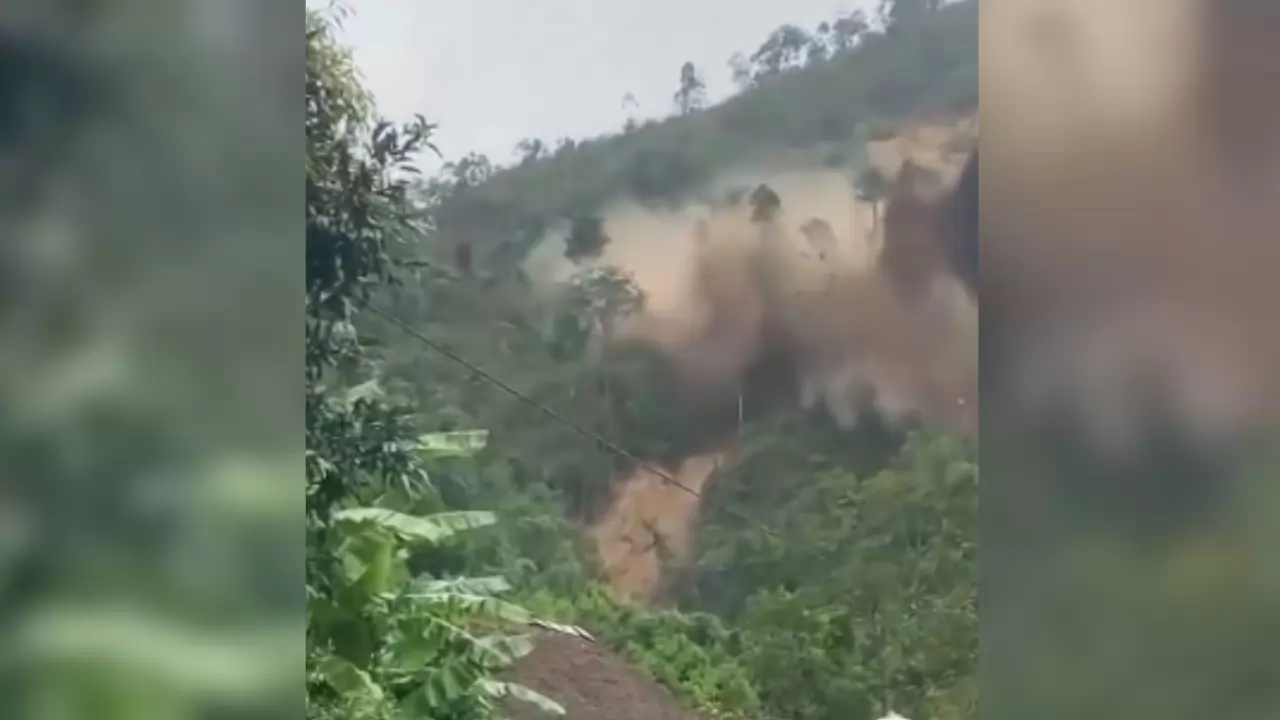
Vietnam landslide (X/volcaholic1)
The death toll in Vietnam from Typhoon Yagi and subsequent torrential rains has reached nearly 200, with 128 people still missing, as reported by local media on Thursday. The storm, which triggered widespread flooding and landslides, has devastated the northern and central regions of the country. According to VNExpress, vivors amidst scenes of destruction.
In the capital city, Hanoi, floodwaters from the Red River have begun to recede, but many areas remain submerged. Streets in the Tay Ho district are flooded, with residents wading through knee-high muddy waters. Some have resorted to using small boats to navigate the inundated roads. The flooding in Hanoi is reported to be the worst the city has experienced in two decades, forcing widespread evacuations.
Earlier in the week, a flash flood swept away the entire hamlet of Lang Nu in northern Vietnam's Lao Cai province, killing 42 people. Rescue teams have been tirelessly searching for survivors, but 53 villagers remain unaccounted for. Lao Cai has been one of the hardest-hit regions, with floods and landslides claiming numerous lives and causing significant infrastructure damage.
Typhoon Yagi, the strongest storm to hit Vietnam in decades, made landfall with winds reaching 149 kph (92 mph) on Saturday. Despite weakening, the storm's aftermath has caused severe flooding and landslides, leaving many rivers at dangerous levels. In Phu Tho province, a 30-year-old bridge over the Red River collapsed, sending several vehicles into the water.
Typhoon Yagi is the most powerful storm to hit Southeast Asia since 2014, and experts warn that climate change is fueling stronger and more frequent storms in the region.





Copyright © 2026 Top Indian News
